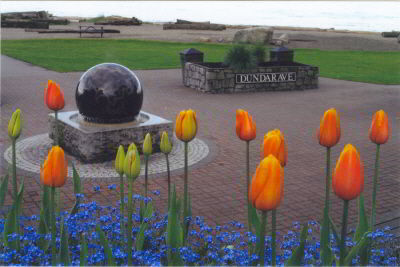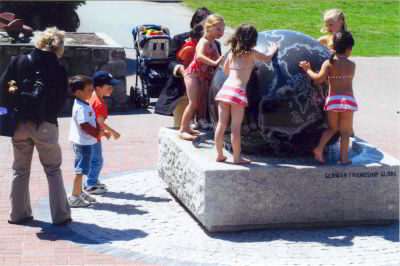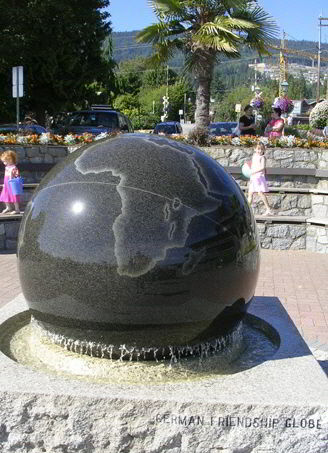The time since my previous newsletter has been longer than I’d hoped. Sorry. We had a pretty wicked winter with lots of high wind and rain
storms, downed power and phone lines, multi-day power outages with the longest consisting of six consecutive days. We spent a lot of time in
survival mode. I didn’t get to send out Xmas greetings nor even to string lights on our tree. Unfortunately spring seems to be taking its
time and we’re all getting pretty fed up with grey. Fortunately there is interesting news on the George Dibbern front.
QUEST:
I am still working on lining up a publisher. At the time of writing, it looks promising.
FOR NEW ZEALANDERS:
Journalist and author David McGill (The Guardians at the Gate and Island of Secrets among other titles) has a quarter-hour
slot Sunday afternoons at 2:15 on Graeme Hill’s program on Radio Live. He has expressed interest in doing a program on George
Dibbern and Te Rapunga. Tentative date is set for 6 May.
ALBRECHT VON FRITSCH/ GEORGE RENÉ HALKETT:
Sally Holden from Cornwall UK contacted me early in the year. She wrote:
I knew Albrecht von Fritsch. He died in Cornwall, England in 1983 and by then was known as Rene Halkett. He came to England in 1936 as a refugee. He worked for one of the special operations in the war doing secret broadcasts back to Germany and after the war he worked for the BBC German Service. He was an artist as well as a writer and ended up in Cornwall where I got to know him and he told me about the sailing trip.
Baron (Freiherr) Albrecht von Fritsch provided startup funding for Te Rapunga‘s departure from Kiel in August 1930. He didn’t stay with the crew for long as he married (Gertrude Gornitzky) in Dover and left, ostensibly, to carry on his journalism career. The marriage (as described by Gornitsky’s daughter, Eva Menkin, in her memoir A Moving Experience) lasted only a couple of years. When in 1936 he emigrated to England he took the name George René Halkett—the name by which Holden (who was assigned the task of disposing of his personal effects on his death) and Ian Fell (who holds all Halkett’s papers and intends to write the biography one of these years) knew him. This is the name under which he published The Dear Monster (London: Jonathan Cape, 1939). The book is currently being translated into German by Ursula Klimmer in Munich. Moreover, Dr. Jutta Failing in Germany is working on a biography of Albrecht’s sister, Doe von Fritsch/Leber, the lady with an adventurous spirit and a generous Krokodil purse.
All this is of great interest in that it is an indication of a growing fascination with the free-thinking people of the thirties in Germany, and of those who refused to buy into the politics of the time. A manifestation of this was the July-August 2006 retrospective of von Fritsch/ Halkett’s art in Biebertal, Germany, sponsored by the Galerie Spermann of Berlin. Bilingual essays by Holden, Fell, Klimmer, and Menkin describing their association with Halkett are included in the exhibit
With a focus on the likes of the von Fritsch family, along with messages such as one I received just recently from a gentleman in Germany who stumbled onto Unter eigener Flagge (the German edition of Dibbern’s book Quest), perhaps Dark Sun will stand a chance of being issued in German. Oliver Markus Dehling of Osnabrück wrote: “With each page I read I became more and more fascinated by this man.” When trying to find more information about Dibbern, however, he discovered “it’s like he had never lived in Germany.” His observation, “I think Germany should know about the life of Georg Dibbern,” echoes sentiments I’ve received many times.
GERMAN FRIENDSHIP GLOBE: To Promote Friendship and Tolerance Amongst All Nations
We discovered the German Friendship Globe on a recent trip to Dundarave in West Vancouver.



The German Friendship Globe fountain consists of a square granite water basin with a precisely machined impression that fits a three foot diameter granite ball engraved with the continents of the world. The 2.5 tonne granite globe floats on a thin, pressurized (25 psi) cushion of water which allows it to be turned at the touch of a hand. It’s weighted at the South Pole end and when left to it’s own devices it will rotate to the North Star.
Donated to the District of West Vancouver by Mr. Harold Lincke and the German Community of Greater Vancouver, it symbolizes peace and friendship among all nations around the world. [my emphasis]
George Dibbern would approve!
If anyone out there has any comments or information re George Dibbern that might be of interest to others, by all means get in touch and I’ll try and include it in the next newsletter.
Erika G.
If you choose not to be on the mailing list, please send an email with “No newsletter” in the subject line.